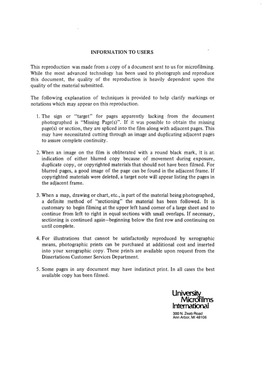| dc.contributor.author | O'sullivan, Chris S., | en_US |
| dc.date.accessioned | 2013-08-16T12:28:55Z | |
| dc.date.available | 2013-08-16T12:28:55Z | |
| dc.date.issued | 1983 | en_US |
| dc.identifier.uri | https://hdl.handle.net/11244/5134 | |
| dc.description.abstract | Results showed that the introduction of information that is highly incongruent with a schema makes information supporting the schema more memorable than it is when only congruent information is heard. This pattern of results was found under both immediate and delayed recall conditions, and with one or two incongruent facts. It is suggested that this effect may be one mechanism by which inappropriate schemas persevere in the face of counterevidence. The pattern of results is found to be more consistent with Hastie's (1980) network associational model of schematic processing (with slight modification) than with Smith and Graesser's (1981) script-pointer + tag model. | en_US |
| dc.description.abstract | Two studies were performed to determine the effect of incongruent information on recall of schematic information in the domain of person memory. Subjects heard descriptions of five stereotypical characters, followed by additional information varying in level of relevance to, and congruence with, the initial information. Free recall of the initial information establishing the schema, which included a stereotype label and two highly congruent facts, was measured. | en_US |
| dc.format.extent | vi, 83 leaves : | en_US |
| dc.subject | Psychology, Social. | en_US |
| dc.title | The effect of incongruent information on schematic processing in person memory. | en_US |
| dc.type | Thesis | en_US |
| dc.thesis.degree | Ph.D. | en_US |
| dc.thesis.degreeDiscipline | Department of Psychology | en_US |
| dc.note | Source: Dissertation Abstracts International, Volume: 44-02, Section: B, page: 0648. | en_US |
| ou.identifier | (UMI)AAI8314784 | en_US |
| ou.group | College of Arts and Sciences::Department of Psychology | |
